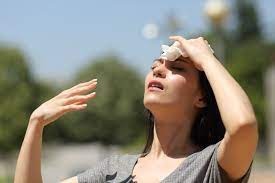Causes, signs, and treatments for dehydration
Your body becomes dehydrated when it loses more water than it takes in, leaving it with inadequate water to perform basic biological processes. Dehydration is defined in this article along with its causes, symptoms, and helpful prevention and treatment advice.
Understanding Dehydration in Section 1
Dehydration is described as a state in which the body is deficient in the fluids it needs to operate correctly.
Explain the critical role water plays in a number of body processes, such as digestion, temperature control, and waste elimination.
Section 2: Dehydration Causes
Discuss how not getting enough water is the most prevalent cause of dehydration. Inadequate Fluid Intake.
Explain how increased urination, vomiting, diarrhea, and perspiration may cause fluid loss.
Mention any medical illnesses that might increase the risk of dehydration, such as diabetes, renal disease, and cystic fibrosis.
Section 3: Dehydration Symptoms
Describe the early warning signs, such as dry mouth, dark urine, and light weariness.
Explain signs of moderate dehydration, such as a fast pulse, sunken eyes, and reduced urine production.
Symptoms of severe dehydration include disorientation, extreme mouth dryness, a sunken fontanelle in babies, and low blood pressure.
Section 4: Water Conservation
Recommend the recommended daily fluid consumption depending on age and amount of exercise.
Stress the value of eating foods rich in water content, such as fruits and vegetables, as part of a balanced diet.
Encourage frequent water consumption throughout the day, particularly in hot conditions or while exercising.
Treatment of Dehydration in Section 5
Explain how oral rehydration products, which are sold over the counter, may assist replenish lost electrolytes and fluids.
Water consumption: It is advised to gradually increase water consumption rather than ingesting big amounts at once.
Rest and a Cool Environment: If heat-related dehydration is suspected, advise taking a break in a cool, shady environment.
When to Seek Medical Attention, Section 6
Stress the need of seeking medical advice if persistent symptoms do not go away after trying self-care measures.
Stress the need for prompt medical attention in cases of severe dehydration, particularly in small children and the elderly.
Special Considerations in Section 7
Discuss the special factors to be taken into account while diagnosing and treating dehydration in children.
Explain how aging may weaken the body’s capacity to recognize thirst, leaving the elderly more vulnerable to dehydration.
Anyone may get dehydrated, but it can be avoided and treated with good hydration practices. You may keep your health and wellbeing at their best by comprehending its origins, identifying its signs and symptoms, and taking precautions to remain hydrated.







